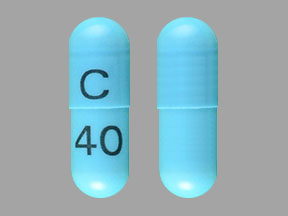
Clindamycin Hcl Coupons & Savings Card – Discount Prices from $9.65
Generic for: Cleocin
My prescription
Edit
300MG, Clindamycin Hcl (30 Capsules)
Select pharmacy

CVS
$21.03
COUPON PRICE
Walmart
$9.65
COUPON PRICE
Walgreens
$14.55
COUPON PRICE
Albertsons
$19.37
COUPON PRICEClindamycin Hcl savings card
Show this card to your pharmacist
Walmart
$9.65
BIN
ID
PCN
GRP
019876
LH1A5DF718
CHIPPO
LHX
Powered by
More prescriptions for upper respiratory infection
More prescriptions for upper respiratory infection
Price history for Cleocin (brand) & Clindamycin Hcl (generic)
30 Capsules, 300MG
Average retail price for Cleocin
Average retail price for Clindamycin Hcl
Average SaveHealth price for Clindamycin Hcl
Our price history data is based on aggregated prescription data collected from participating pharmacies in America. Our prescription data updates daily to reflect the latest price changes. If you notice a missing data point, it means there wasn't sufficient data available to generate a monetary value for that date.
We analyzed Clindamycin Hcl prices for (300MG, 30 Capsules) over the last 12 months. The average retail price was $53.84, while the average price using the SaveHealth discount card was $22.01. That's a savings of approximately 59.12% when using our Clindamycin Hcl coupon.
Compared to the generic version, Cleocin had an average price of $100.13 over the same time period. With the SaveHealth savings card, Clindamycin Hcl is 78.02% cheaper on average than Cleocin.
*Retail prices are based on pharmacy claims data, and may not be accurate when we don't have enough claims.
Clindamycin Hcl Monohydrate (Clindamycin Hcl) dosage forms
Dosage Quantity Price from Per unit 75MG 14 Capsules $3.13 $0.22 75MG 20 Capsules $6.61 $0.33 75MG 28 Capsules $11.15 $0.40 75MG 30 Capsules $11.41 $0.38 75MG 60 Capsules $15.33 $0.26 150MG 21 Capsules $4.70 $0.22 150MG 28 Capsules $5.43 $0.19 150MG 30 Capsules $5.64 $0.19 150MG 40 Capsules $6.69 $0.17 150MG 63 Capsules $9.10 $0.14
| Dosage | Quantity | Price from | Per unit |
|---|---|---|---|
| 75MG | 14 Capsules | $3.13 | $0.22 |
| 75MG | 20 Capsules | $6.61 | $0.33 |
| 75MG | 28 Capsules | $11.15 | $0.40 |
| 75MG | 30 Capsules | $11.41 | $0.38 |
| 75MG | 60 Capsules | $15.33 | $0.26 |
| 150MG | 21 Capsules | $4.70 | $0.22 |
| 150MG | 28 Capsules | $5.43 | $0.19 |
| 150MG | 30 Capsules | $5.64 | $0.19 |
| 150MG | 40 Capsules | $6.69 | $0.17 |
| 150MG | 63 Capsules | $9.10 | $0.14 |
| 300MG | 30 Capsules | $9.65 | $0.32 |
| 300MG | 14 Capsules | $5.84 | $0.42 |
| 300MG | 21 Capsules | $7.51 | $0.36 |
| 300MG | 28 Capsules | $9.17 | $0.33 |
| 300MG | 40 Capsules | $12.04 | $0.30 |
